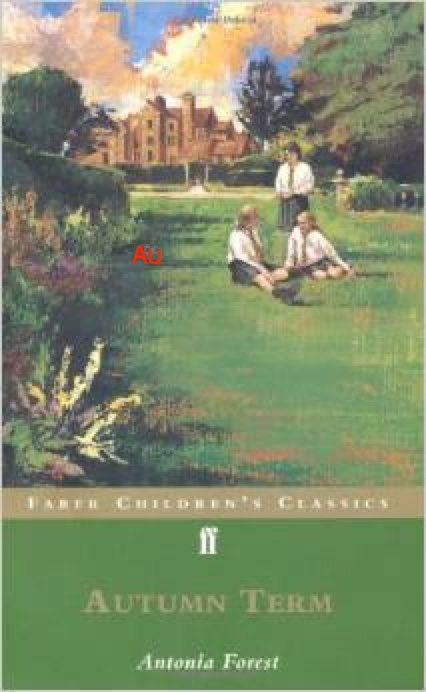Autumn Term
I’ve been reading a bunch of School Stories lately, with special attention to the modern school story. (The Victorian school story ends with graduation; the modern school story ends with the dissolution of the school.) One technical problem of the school story is that it requires buckets of exposition concerning school customs and characters; one the one hand, this is the entire point, but unless you handle things with care it also become ludicrously parochial.
To this, the modern school story adds a second problem: how do you demolish the school without harming the children? The 19th century didn’t mind killing kids; kids died all the time, they die in Little Women and in Tom Brown’s Schooldays and it’s not a scandal. But this is very dicy territory now. Anya dies in Buffy, but (a) she’s a demon, and (b) she’s a kid but she’s also hundreds of years old. Rue dies in The Hunger Games, but that’s the start of a war. It’s quite tricky even to be beastly to a fictitious child these days.
The other school stories I’ve read are either famous and beloved or new and exciting. Autumn Term, which Meryl recommended, is thoroughly forgotten, out of print, and fairly difficult to find. It’s very much in the Victorian style, and it has the further delight of featuring identical twins (cf. Sisterland and Fangirl). It’s very well written. Though it’s implicitly feminist, the book is uninterested in race or gender or class; modern Britain isn’t even on the horizon, neither War has cast a shadow, we give no thought to the colonies and we are living still in the Edwardian twilight.
The series, of which this is the first installment, is a fascinating little corner of book selling. The stories are again out of print, having been reprinted in the 90’s by Puffin and in the 00’s by a small press. They’re not wildly well known, but they have sufficient following that an old Puffin paperback in adequate condition is likely to sell for $70 or so in our newly-efficient used book market. Programmed bidding, where booksellers have their computers check competitor pricing, sometimes leads to isolated used book weirdness where some forgotten volume winds up with an astronomical price, but I suspect this is real: there’s enough demand to keep the price high, but not quite enough demand to attract the attention of a publisher and of the author’s estate.
